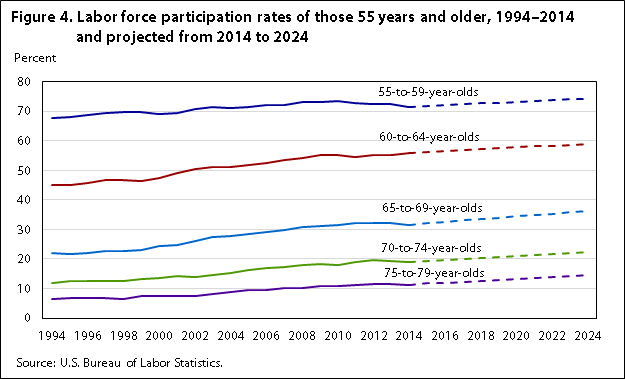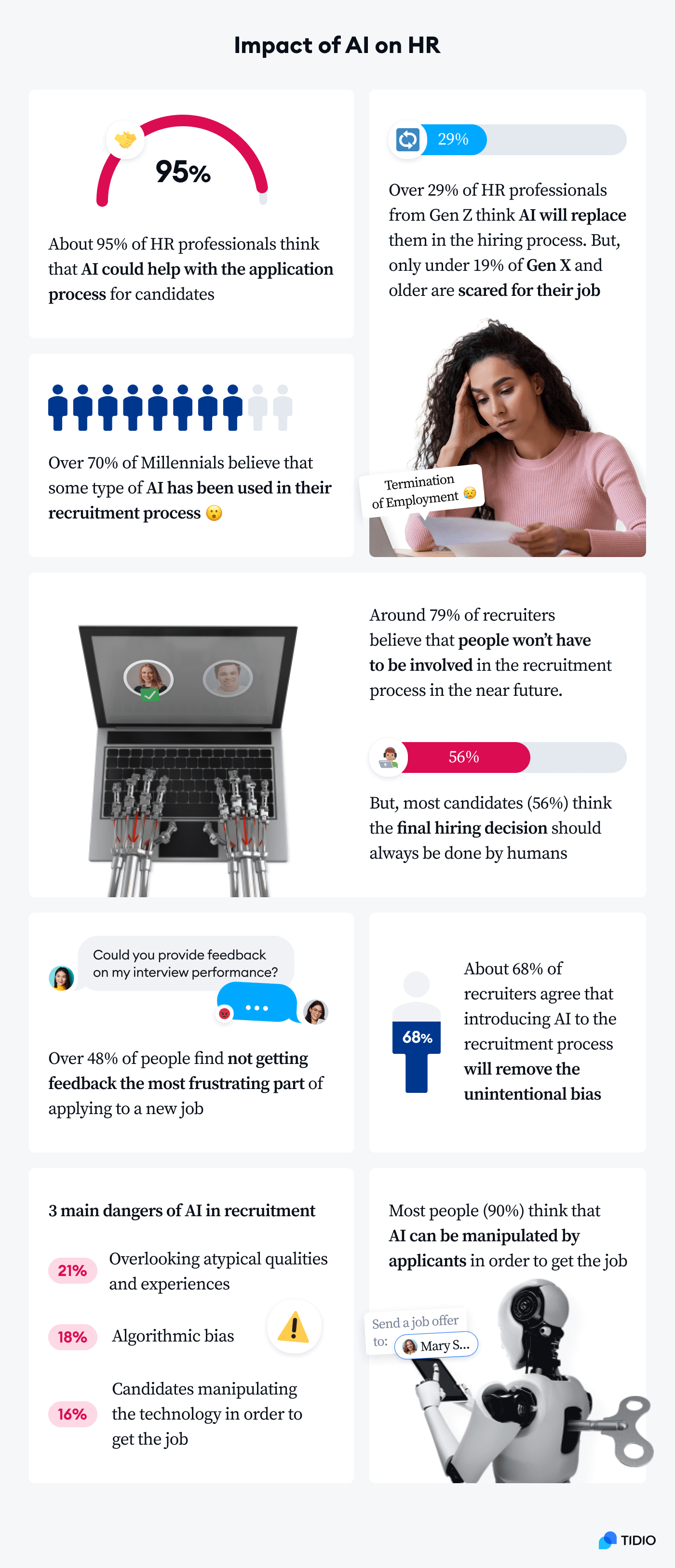We are going from the impactful year of 2023 into an era marked by new challenges and opportunities. It becomes paramount to reflect on the vital industry shifts that have defined the past year and cast an informed gaze towards the future.
Paradigm-shifting impacts of technology, surging demand for specialised skills in healthcare, the ripple effects of remote work, evolving the hiring processes in non-healthcare sectors – in 2023, several key developments and shifts happened in the recruitment and staffing industry. We aim to shed light on the impact of technological advancements, emerging trends, and the growing importance of a global workforce.
What shaped global staffing in 2023?
In 2024, the Bureau of Labor Statistics predicts that 25% of the workforce will be aged 55 or older, an increase from 21.7% in 2014. Pay transparency and equity are taking centre stage as Indeed reported a 30% hike in applicants applying for roles with listed pay.

Advancements in technology, changing workforce demographics, and the ongoing impact of the pandemic played pivotal roles in these emerging statistics and fast-paced transformations.
The healthcare sector, in particular, faced unique challenges, including the adoption of telehealth and the growing demand for specialised professionals.
Non-healthcare sectors also experienced notable changes, influenced by the rise of remote work and a shift in required skill sets.
Specialised Talent in Focus: Navigating Healthcare Staffing in 2023
Technological Advancements in Healthcare Staffing: In 2023, technological innovations continue to reshape the healthcare sector, influencing how organisations approach staffing. The integration of artificial intelligence (AI) and machine learning (ML) has not only streamlined recruitment processes but has also allowed for more efficient matching of healthcare professionals with the right opportunities.

Telehealth and Virtual Healthcare Services: The rise of telehealth and virtual healthcare services has transformed patient care and redefined recruitment needs in the healthcare sector. The demand for professionals skilled in virtual care delivery is rising, leading to a shift in recruitment strategies to identify and attract talent with expertise in this evolving field.
Specialised Healthcare Professionals: As the healthcare landscape becomes more specialised, the demand for professionals with niche skills is growing.
Recruitment companies are adapting to this trend, focusing on identifying and attracting specialised healthcare professionals, from genetic counsellors to telemedicine experts.
Our clients realise upto 50% Cost
Savings when they partner with us
Skill Revolution: Remote Work’s Ripple Effect on Non-Healthcare Staffing
Remote Work and Staffing Requirements: The influence of remote work on staffing requirements is a prominent trend in non-healthcare sectors.
Organisations are reevaluating their talent acquisition strategies to accommodate the preferences of remote workers. This shift has also led to a redefinition of skill sets in demand, with a greater emphasis on digital literacy and collaboration skills.
Changing Skill Sets and Hiring Processes: The evolving needs of industries outside healthcare are reflected in changing skill sets.
Organisations are adapting their hiring processes to identify candidates with diverse skill sets, prioritising adaptability and the ability to thrive in a dynamic work environment.
Global Workforce Dynamics: Navigating Trends in Talent Mobility
Trends in Talent Mobility: The workforce is becoming increasingly globalised, and talent mobility is a key aspect of this shift. Organisations leverage technology to attract and retain international talent, recognising the value of a diverse and globally experienced workforce.
Adjusting Recruitment Strategies: Recruitment strategies are evolving to accommodate the trend of global talent mobility. Companies emphasise creating inclusive environments and supporting international hires, ensuring a smooth integration into the workplace.
Smart Hiring: Navigating Recruitment Efficiency with AI and Automation
Streamlining Processes with AI and Automation: AI, machine learning, and automation streamline recruitment, letting specialists focus strategically. With 40% spent on resume screening and data entry, these technologies efficiently search databases, expanding the talent pool. This revolution reduces traditional phases, saving application verification, background checks, and interview time.
To explore more about AI in Recruitment, check out this Blog – Future-Proofing Recruitment: Harnessing AI for Smarter Hiring.

Source: Tidio
Enhancing Candidate Experience: Technology benefits recruiters and improves the candidate experience. Automated communication, personalised interactions, and data-driven insights contribute to a positive and streamlined recruitment process, enhancing the candidate journey.
Diversity in the Spotlight: Progress, Challenges, and Best Practices
Progress and Challenges in Implementation: The push for diversity and inclusion in recruitment is ongoing, with organisations making strides and facing challenges. It’s crucial to assess the progress made and address the obstacles that hinder the full implementation of inclusive hiring practices. In 2023, DEI initiatives gained significant prominence, with 56% of employed US adults viewing it positively, according to research by Pew Research Centre survey.
Successful Case Studies and Best Practices: Highlighting successful case studies and best practices worldwide is essential to inspire change. Organisations that successfully implement diversity and inclusion initiatives can serve as models for others looking to create more inclusive workplaces.
Anticipating Change: Industry Trajectories and Disruptors in 2024
Informed Predictions and Industry Trajectories: Based on current industry insights and trajectories, informed predictions for 2024 include a continued emphasis on remote work, an increased focus on upskilling and reskilling, and integrating innovative technologies to enhance recruitment processes further.
Potential Disruptors and Innovations: As the industry evolves, potential disruptors and innovations, such as the adoption of virtual reality in recruitment processes and the rise of decentralised autonomous organisations (DAOs) in talent acquisition, may shape the recruitment landscape unexpectedly.
Beyond 2023: Crafting a Future-Ready Approach to Recruitment
The recruitment and staffing industry has been in a dynamic change in 2023. Organisations must embrace adaptability and a forward-thinking approach to navigate the evolving landscape successfully. Whether in healthcare or non-healthcare sectors, the influence of technology, global talent mobility, and the imperative for diversity and inclusion are shaping recruitment strategies.
As we look ahead to 2024, staying informed and proactive will be crucial for employers and job seekers. The key takeaway is clear – recruitment’s future belongs to those ready to embrace change and innovation.







